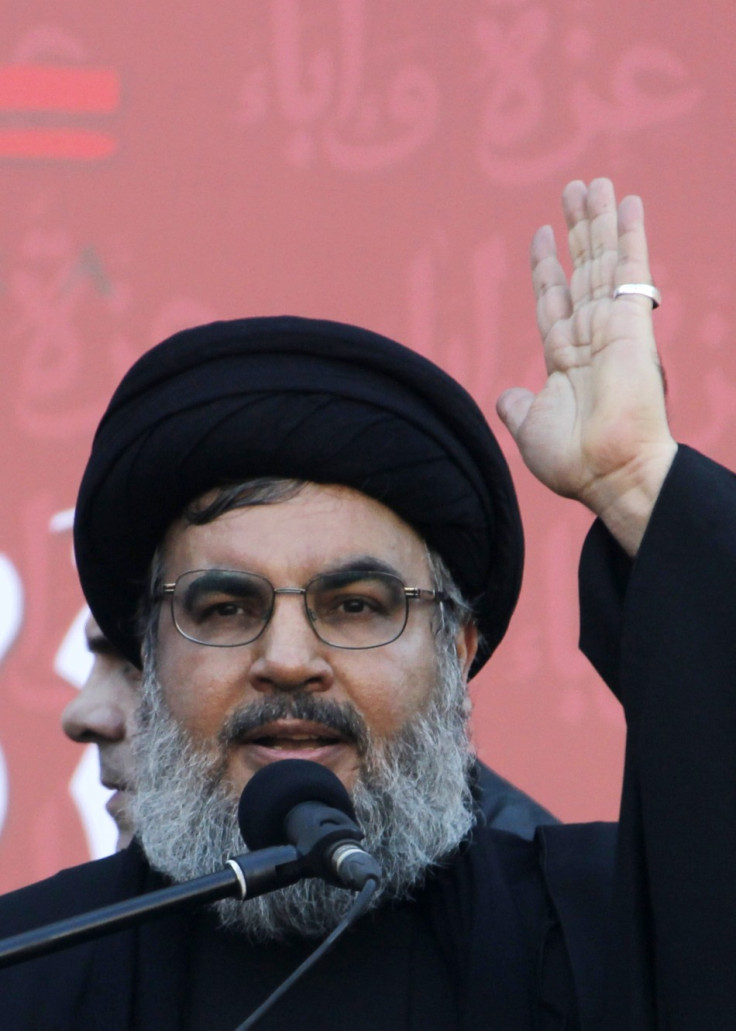Hezbollah’s Nasrallah Calls for Calm after Shia Pilgrims Abducted in Syria

Hezbollah leader Sheik Hassan Nasrallah has called for calm after the kidnapping of 13 Shia Muslims in Syria's northern province of Aleppo.
"This is strictly prohibited," Nasrallah said in a televised speech, before calling on the Lebanese government to step up pressure for the pilgrims to be released.
"We will work day and night until these beloved people are with us," he added.
Nasrallah has remained a close ally of President Bashar al-Assad and his regime, despite more than a year of protests and a state-led crackdown on the population.
The incident is threatening to further ignite sectarian tensions between Shia and Sunni Muslims in both Syria and Lebanon.
The 13 kidnap victims were among dozens of Shi'ite pilgrims traveling on a bus as it crossed the border from Turkey to Syria on 22 May. Families of the victims said they were on their way back from a religious pilgrimage to Iran.
Lebanese foreign minister Adnan Mansur, who said the pilgrims were kidnapped by "a splinter group of the armed Syrian opposition", expects them to be released soon.
"According to information provided by an Arab country, those kidnapped will be free within hours," Mansur told Al-Jadeed, a private Lebanese satellite television station.
The Free Syrian Army (FSA) has strongly denied being involved in the abduction.
"The FSA is not at all responsible for the operation," Mustafa al-Sheikh, a high-ranking FSA officer, told AFP.
"This is an attempt to distort the image of the FSA. The FSA does not believe in this methodology," said Sheikh, head of the group's military council.
He said the attack "is, no doubt, the work of the regime, which wants to sow chaos in the region".
Syria's largest umbrella opposition group, the Syrian National Council (SNC), has also condemned the kidnappings.
"The Syrian National Council condemns any kidnappings, assault or terrorising of our Lebanese brothers and demands their immediate release," a SNC statement said.
"The council calls on the officers of the Free Syrian Army... who rebelled against the repression and criminality of the regime, to do everything they can to free the Lebanese brothers," the statement added.
The pilgrims' abduction took place just a day after a series of clashes erupted in Beirut, Lebanon's capital, between pro- and anti-Assad protesters, prompting fears Syria's unrest could spill over into the neighbouring country. At least two people died in the confrontation.
The latest surge of violence was sparked by the killing on 20 May of Sheikh Ahmed Abdul-Wahid, an anti-Assad cleric, and his bodyguards in northern Lebanon.
Reports suggest a Lebanese soldier shot the two men after they failed to stop at a checkpoint.
The killings sparked anger among Lebanese, who viewed them as a sign of the Lebanese forces' continued support for Assad.
The arrest earlier this month of Shadi Mawlawi, a strong critic of Assad, has also fuelled anger, though he since been released on bail.
© Copyright IBTimes 2025. All rights reserved.




















